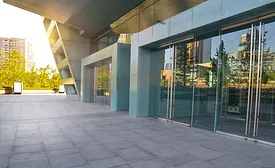Security Leadership and Management
COVID-19 Heroes
Director of Security for the Pojoaque Valley School District in New Mexico, Gary Johnson has taken a lead role in implementing COVID-19-related screening procedures, safety and security plans, and reopening protocols, but more importantly, he’s placed a focus on supporting students, staff and community members.
Read More
COVID-19 Heroes
The NFL’s GSOC takes center stage in getting players back on the field
As the centralized place for intelligence and information, the NFL’s GSOC played a pivotal role in the League’s pandemic response, streamlining access and infection control, updating business continuity plans, and providing relevant data to enable all stakeholders to make informed decisions.
June 4, 2021
Sign-up to receive top management & result-driven techniques in the industry.
Join over 20,000+ industry leaders who receive our premium content.
SIGN UP TODAY!Copyright ©2026. All Rights Reserved BNP Media.
Design, CMS, Hosting & Web Development :: ePublishing













